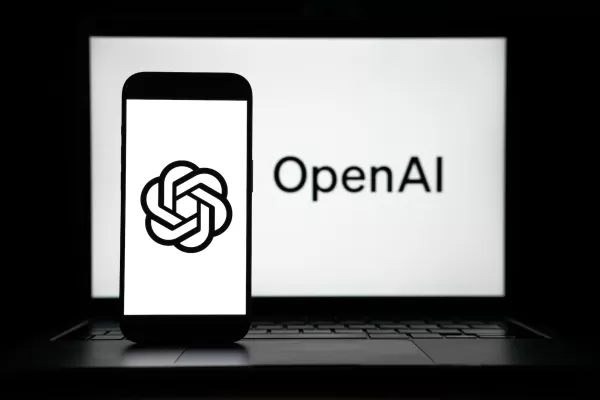Tech Coalition Objects to OpenAI's Departure From Nonprofit Origins
An influential coalition of artificial intelligence experts, including former OpenAI staff members, has raised significant concerns about the organization's departure from its founding nonprofit principles.
Open Governance Concerns
A formal letter submitted to authorities in California and Delaware outlines deep concerns about structural changes potentially compromising OpenAI's original humanitarian mission. The diverse group of signatories – spanning AI researchers, legal professionals, nonprofit leaders, and corporate governance specialists – contends the proposed shift to a public benefit corporation model undermines critical protections established in OpenAI's charter.
Mission-Driven Origins Under Threat
Originally incorporated with clear nonprofit intentions, OpenAI's fundamental objective remains "developing artificial general intelligence to benefit humanity" without privileging private interests. This foundational commitment now faces potential dilution through planned corporate restructuring.
The transformation currently under consideration would essentially transfer governance authority from the original nonprofit entity overseeing OpenAI to a new Delaware-based public benefit corporation structure. Critics argue this restructured framework could subordinate humanitarian priorities to shareholder interests in developing transformative AGI technologies.
Original Protective Framework
OpenAI leadership previously established several key safeguards when introducing capped-profit arrangements in 2019 to attract necessary investment while preserving mission integrity:
- Nonprofit parent company maintained ultimate control over operations
- Strict limitations on financial returns to investors
- Independent board oversight without financial conflicts
- Fiduciary obligations explicitly tied to public benefit objectives
- Nonprofit retention of AGI governance authority
The organization's founders, including prominent figures like Sam Altman and Elon Musk, specifically designed this hybrid structure to prevent commercial pressures from compromising ethical AI development priorities.
Potential Compromises
Experts warn the restructured governance model threatens multiple aspects of OpenAI's original protective framework:
- Possible elimination of enforceable public benefit requirements
- Removal of investor return limitations could divert resources from humanitarian aims
- Uncertain preservation of independent oversight mechanisms
- Transfer of AGI governance authority to profit-motivated entity
- Potential weakening of safety commitments like collaboration protocols
While OpenAI cites competitive pressures necessitating these changes, critics counter that maintaining mission integrity should supersede commercial considerations for an organization established as a public benefit entity.
Call for Regulatory Review
The coalition has formally requested regulatory intervention to:
- Suspend proposed restructuring pending proper review
- Mandate transparent justification for governance changes
- Preserve existing nonprofit control provisions
- Ensure continued independent oversight of AGI development
"This restructuring could effectively transfer control of potentially transformative technology from a mission-driven organization to conventional corporate interests," the signatories conclude, urging careful regulatory consideration before approving fundamental changes to OpenAI's governance model.
Related Industry Developments
The debate occurs alongside ongoing legal disputes between OpenAI and Elon Musk regarding similar concerns about mission preservation versus commercialization pressures in AI development.
Related article
 Pinterest Takes Action to Address AI-Generated Content Overload
Pinterest is implementing new transparency measures to help users distinguish and minimize exposure to artificial content. The visual discovery platform is introducing automatic labeling for images identified as AI-generated or manipulated, accompani
Pinterest Takes Action to Address AI-Generated Content Overload
Pinterest is implementing new transparency measures to help users distinguish and minimize exposure to artificial content. The visual discovery platform is introducing automatic labeling for images identified as AI-generated or manipulated, accompani
 OpenAI Partner Reveals Limited Testing Time for New O3 AI Model
Metr, OpenAI's frequent evaluation partner for AI safety testing, reports receiving limited time to assess the company's advanced new model, o3. Their Wednesday blog post reveals testing occurred under compressed timelines compared to previous flagsh
OpenAI Partner Reveals Limited Testing Time for New O3 AI Model
Metr, OpenAI's frequent evaluation partner for AI safety testing, reports receiving limited time to assess the company's advanced new model, o3. Their Wednesday blog post reveals testing occurred under compressed timelines compared to previous flagsh
 Google's NotebookLM Introduces AI-Powered Narration for Slideshows
NotebookLM from Google is introducing an innovative Video Overviews feature that harnesses AI technology to automatically generate narrated slideshow presentations. Currently rolling out with English support, Google has confirmed plans to expand lang
Comments (0)
0/200
Google's NotebookLM Introduces AI-Powered Narration for Slideshows
NotebookLM from Google is introducing an innovative Video Overviews feature that harnesses AI technology to automatically generate narrated slideshow presentations. Currently rolling out with English support, Google has confirmed plans to expand lang
Comments (0)
0/200
An influential coalition of artificial intelligence experts, including former OpenAI staff members, has raised significant concerns about the organization's departure from its founding nonprofit principles.
Open Governance Concerns
A formal letter submitted to authorities in California and Delaware outlines deep concerns about structural changes potentially compromising OpenAI's original humanitarian mission. The diverse group of signatories – spanning AI researchers, legal professionals, nonprofit leaders, and corporate governance specialists – contends the proposed shift to a public benefit corporation model undermines critical protections established in OpenAI's charter.
Mission-Driven Origins Under Threat
Originally incorporated with clear nonprofit intentions, OpenAI's fundamental objective remains "developing artificial general intelligence to benefit humanity" without privileging private interests. This foundational commitment now faces potential dilution through planned corporate restructuring.
The transformation currently under consideration would essentially transfer governance authority from the original nonprofit entity overseeing OpenAI to a new Delaware-based public benefit corporation structure. Critics argue this restructured framework could subordinate humanitarian priorities to shareholder interests in developing transformative AGI technologies.
Original Protective Framework
OpenAI leadership previously established several key safeguards when introducing capped-profit arrangements in 2019 to attract necessary investment while preserving mission integrity:
- Nonprofit parent company maintained ultimate control over operations
- Strict limitations on financial returns to investors
- Independent board oversight without financial conflicts
- Fiduciary obligations explicitly tied to public benefit objectives
- Nonprofit retention of AGI governance authority
The organization's founders, including prominent figures like Sam Altman and Elon Musk, specifically designed this hybrid structure to prevent commercial pressures from compromising ethical AI development priorities.
Potential Compromises
Experts warn the restructured governance model threatens multiple aspects of OpenAI's original protective framework:
- Possible elimination of enforceable public benefit requirements
- Removal of investor return limitations could divert resources from humanitarian aims
- Uncertain preservation of independent oversight mechanisms
- Transfer of AGI governance authority to profit-motivated entity
- Potential weakening of safety commitments like collaboration protocols
While OpenAI cites competitive pressures necessitating these changes, critics counter that maintaining mission integrity should supersede commercial considerations for an organization established as a public benefit entity.
Call for Regulatory Review
The coalition has formally requested regulatory intervention to:
- Suspend proposed restructuring pending proper review
- Mandate transparent justification for governance changes
- Preserve existing nonprofit control provisions
- Ensure continued independent oversight of AGI development
"This restructuring could effectively transfer control of potentially transformative technology from a mission-driven organization to conventional corporate interests," the signatories conclude, urging careful regulatory consideration before approving fundamental changes to OpenAI's governance model.
Related Industry Developments
The debate occurs alongside ongoing legal disputes between OpenAI and Elon Musk regarding similar concerns about mission preservation versus commercialization pressures in AI development.
 Pinterest Takes Action to Address AI-Generated Content Overload
Pinterest is implementing new transparency measures to help users distinguish and minimize exposure to artificial content. The visual discovery platform is introducing automatic labeling for images identified as AI-generated or manipulated, accompani
Pinterest Takes Action to Address AI-Generated Content Overload
Pinterest is implementing new transparency measures to help users distinguish and minimize exposure to artificial content. The visual discovery platform is introducing automatic labeling for images identified as AI-generated or manipulated, accompani
 OpenAI Partner Reveals Limited Testing Time for New O3 AI Model
Metr, OpenAI's frequent evaluation partner for AI safety testing, reports receiving limited time to assess the company's advanced new model, o3. Their Wednesday blog post reveals testing occurred under compressed timelines compared to previous flagsh
OpenAI Partner Reveals Limited Testing Time for New O3 AI Model
Metr, OpenAI's frequent evaluation partner for AI safety testing, reports receiving limited time to assess the company's advanced new model, o3. Their Wednesday blog post reveals testing occurred under compressed timelines compared to previous flagsh
 Google's NotebookLM Introduces AI-Powered Narration for Slideshows
NotebookLM from Google is introducing an innovative Video Overviews feature that harnesses AI technology to automatically generate narrated slideshow presentations. Currently rolling out with English support, Google has confirmed plans to expand lang
Google's NotebookLM Introduces AI-Powered Narration for Slideshows
NotebookLM from Google is introducing an innovative Video Overviews feature that harnesses AI technology to automatically generate narrated slideshow presentations. Currently rolling out with English support, Google has confirmed plans to expand lang





























